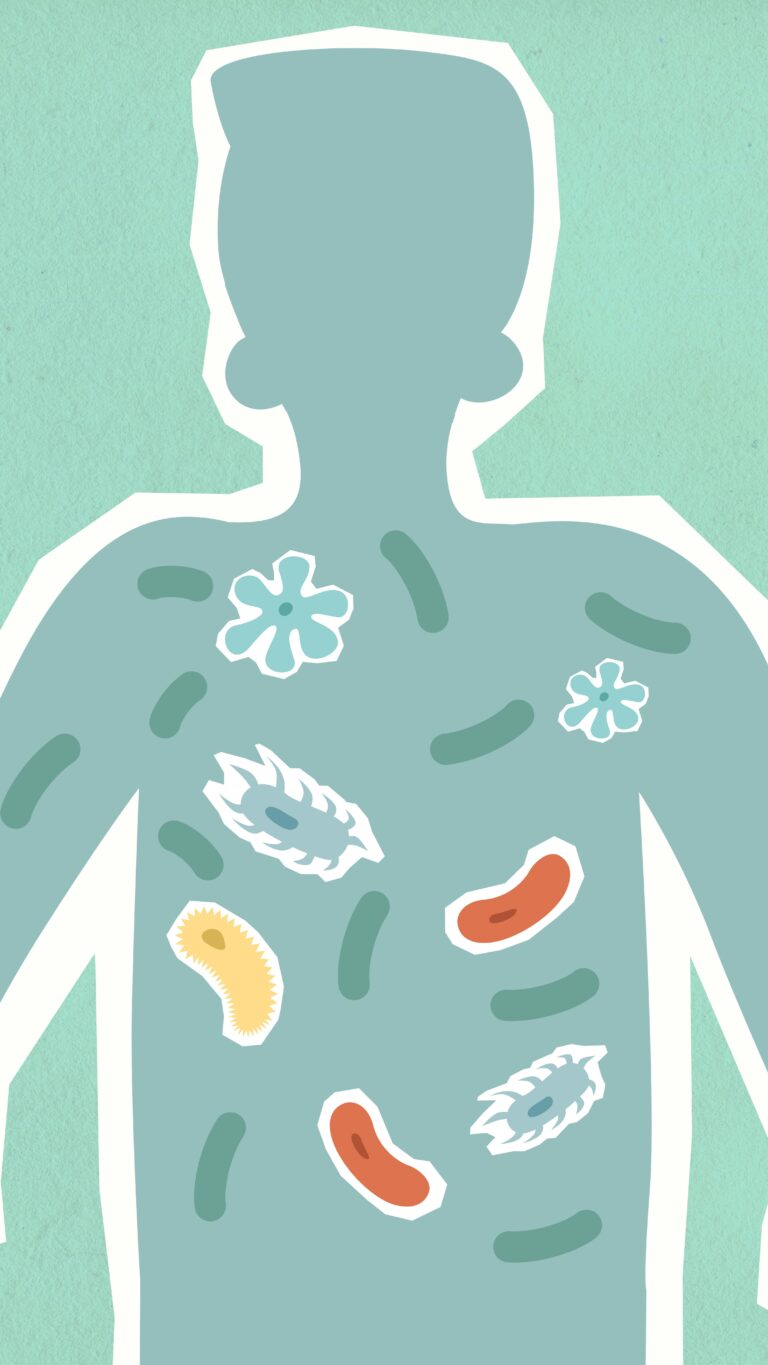
Gut Health
Your gut is more than just a digestive organ—it’s a complex ecosystem that plays a crucial role in your overall health. Your gut microbiota, which is home to more than 100 trillion microorganisms, affects immunity, metabolism, digestion, and even mental health. Since your gut contains 75% of your immune system, maintaining a healthy digestive system is crucial for preventing infections and lowering inflammation.
Why Gut Health Matters
Chronic inflammation, compromised immunity, and digestive problems can result from an imbalance in gut flora. Irritable bowel syndrome (IBS), obesity, diabetes, and autoimmune illnesses have all been connected to poor gut health. Maintaining a balanced gut flora helps:
- Enhance nutrient absorption
- Regulate bowel movements
- Boost energy and mental clarity
- Strengthen immune function
Signs of an Unhealthy Gut
- irregular bowel movements (diarrhea or constipation)
- Heartburn, gas, or bloating
- Frequent mood swings or exhaustion
- Intolerant foods
The color and form of your feces might also reveal the health of your gut. It should ideally be medium brown, silky, and well-formed. Unusual textures or hues could indicate intestinal problems.
How to Improve Gut Health
- Eat Gut-Friendly Foods: To support a healthy gut, focus on incorporating gut-friendly foods into your diet. Probiotics, which are abundant in fermented foods like yogurt, kimchi, sauerkraut, and kefir, bring good bacteria into your digestive tract. Furthermore, prebiotic foods like pomegranates, asparagus, garlic, and onions serve as fuel for these beneficial bacteria, promoting their growth and preserving a healthy gut lining. Probiotics and prebiotics complement one another to enhance immunity, facilitate better digestion, and support gut health in general. You may improve your health and balance your microbiome by including a range of these items in your meals.
- Stay Hydrated & Eat Clean: Drink plenty of water to aid digestion and choose organic, pesticide-free foods to avoid gut irritation.
- Avoid Gut Harmers: Processed foods, excess sugar, alcohol, and smoking damage gut bacteria.
- Practice Healthy Habits for Better Gut Health: Chew food thoroughly to aid digestion, avoid late-night eating to prevent bloating, exercise regularly to keep bowel movements steady, and manage stress to maintain a balanced gut microbiome. Small daily habits make a big difference!
The Benefits of a Gut Cleanse
A natural colon cleanse—supported by fiber-rich foods, proper hydration, and probiotics—offers multiple benefits. It improves immunological function and energy levels, reduces bloating and constipation, and improves digestion and nutrient absorption. This procedure helps you feel lighter, more energetic, and better prepared to preserve long-term digestive health by gently eliminating toxins and harmonizing gut flora. A healthier, more invigorated you starts with a cleansed stomach.
A healthy gut is key to overall wellness. By eating a diverse, fiber-rich diet, staying hydrated, and maintaining a healthy lifestyle, you can support your gut microbiome and enhance your health from the inside out.
Listen to your gut—it knows best!












